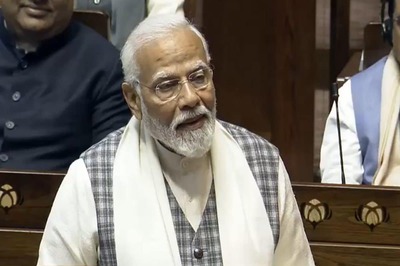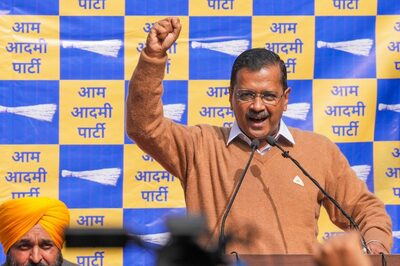
views
Sudini Jaipal Reddy was an exceptional figure in India's public life, for all of five decades. He was a true democrat, whose intellect, integrity, courage and tolerance for differing perspectives made him a universally respected politician.
Scion of a well-off land-owning family, he overcame life-long physical limitations (with the same insouciance that he transcended the feudal milieu to which he was born) to carve a place for himself in national politics, on the centre-left of the spectrum. Starting as a student leader in the 1960s, he went to become a Cabinet minister several times over.
Jaipal defied the standard perception of a politician. He had a mass following, but made no empty promises, eschewed the politics of patronage and avoided electoral funding from questionable sources, relying largely on his family's resources — a family which strictly followed the arm's-length principle when it came to Jaipal's political career.
One might well ask why a young lad on crutches (as a result of contracting polio as a toddler) chose a career as physically demanding as politics. The answer lay in his remarkable strength of will, which allowed him to overcome what for others would have been insurmountable obstacles.
Economist Mohan Guruswamy, one of Jaipal's longest-standing friends, recalls their first meeting, when they were both student leaders in Hyderabad. Jaipal was always accompanied by an entourage of fellow students, ready to do or die for him. Here was a young man on crutches, commanding a troupe of hefty young men, through sheer force of personality! They were in awe of his intellect but proud of it and devoted to him.
He was always matter-of-fact about his physical challenges, be it his heart condition, diabetes or difficulty negotiating too long a flight of stairs. He never seemed short of energy and was a good trencherman, with an appreciation for different kinds of cuisine.
Jaipal was a true liberal. A puritan when it came to his own lifestyle, he did not expect others to follow suit. Once, during an informal meeting with journalists, the conversation veered around to the affair between a right-wing leader and a woman colleague (both single). Jaipal's only comment was: “I like him the better for it. If anything, it humanises him.”
Likewise, he placed a high premium on his own integrity but never judged fellow politicians who found themselves at the receiving end of corruption charges, regardless of their political affiliations. Journalists would heckle him for his 'soft line' on caste-based politics and corruption, but he took it in good part.
Jaipal was an excellent orator and a gifted wordsmith, with a witty turn of phrase to suit any event. His mastery over the English and Telugu languages was backed by his voracious and eclectic appetite for books, which made him an exemplary spokesperson for the Congress and a formidable opponent in Parliament.
He could quote Keynes or Locke, Bertrand Russell or Jeremy Bentham, Nehru or Gandhi, at the drop of a hat. If a debate was too contentious or questions from journalists too probing, he would deftly turn the subject to safer channels with a characteristic clearing of the throat. The media was fond of him and looked forward to his annual 'Andhra' lunches.
He had a remarkable capacity to make and keep friends, mainly because he did not expect or even want them to agree with him. He would challenge those who were ideologically opposed to him, bringing to bear his encyclopaedic knowledge of history and philosophy. The level of debate was elevated, peppered with literary references and generally inconclusive — to be resumed another day.
His generosity of spirit was such that ideological divides did not prevent him from celebrating merit. His delight when A Surya Prakash was appointed chairman of Prasar Bharti by the NDA, was unmistakable. “They could not have decided on anyone better,” he observed. It was Jaipal, as Information & Broadcasting minister in the United Front government, who had piloted the Prasar Bharti Act granting autonomy to the public broadcaster, better known as Doordarshan.
Jaipal began his political career with the Congress in Andhra Pradesh, then dominated by stalwarts like PV Narasimha Rao. Although Jaipal quit the party in 1977 in protest against the Emergency and joined the Janata Party, Rao harboured an avuncular fondness for him and the cordial relationship continued under the latter's prime ministership.
He was open-minded and never sought to force facts to fit his world-view. He was a rationalist and confirmed agnostic, but when he met 'godman' Chandraswami as a young MLA, he was willing to acknowledge the guru's apparent powers.
Chandrawami asked him to write down questions in English on pieces of paper and fold them up. Although the godman could not have known what Jaipal had written and in any case, knew no English, he reeled off the questions with a hundred per cent accuracy. Jaipal was impressed, until he reasoned that while Chandraswami knew the questions, he didn't have any answers!
When Jaipal decided to join the Congress in 2000, his closest friends were stunned. A man who had fought against dynastic politics all his life, had now come to terms with it. Jaipal explained that he was being pragmatic. He was a career politician, a four-term MLA, three-term Lok Sabha MP and two-term Rajya Sabha MP and wanted to continue, but knew he had no future in the Janata Dal.
Having taken the plunge, he remained loyal to the Congress leadership, even when he was summarily evicted from the Petroleum and Natural Gas portfolio in UPA II. He always spoke respectfully of UPA chairperson Sonia Gandhi, whether in public or private.
His intimates, among them the late journalist Girish Nikam, repeatedly urged him to write his autobiography. After all, he had had a ringside seat to the most transformative period of Indian politics. He hemmed and hawed, but lost interest in the project when Nikam passed away.
Instead, he embarked on an academic work, which examined “the great asymmetry” between mankind's scientific advances and its failure to adapt emotionally and intellectually to the resulting transformation. 'Ten Ideologies: The Great Asymmetry Between Agrarianism and Industrialism' was released by former prime minister Manmohan Singh at a jam-packed function in August last year. It was attended by all key opposition figures, leading the media to infer that it was a 'show of unity'.
The function would prove to be the last milestone in Jaipal Reddy's life.
He will always be an inspiration: an old school gentleman politician and a brave spirit, whose basic decency stood out in stark contrast to the pervasive decline of standards in public life.
(The author is a senior journalist. Views expressed are personal)




















Comments
0 comment